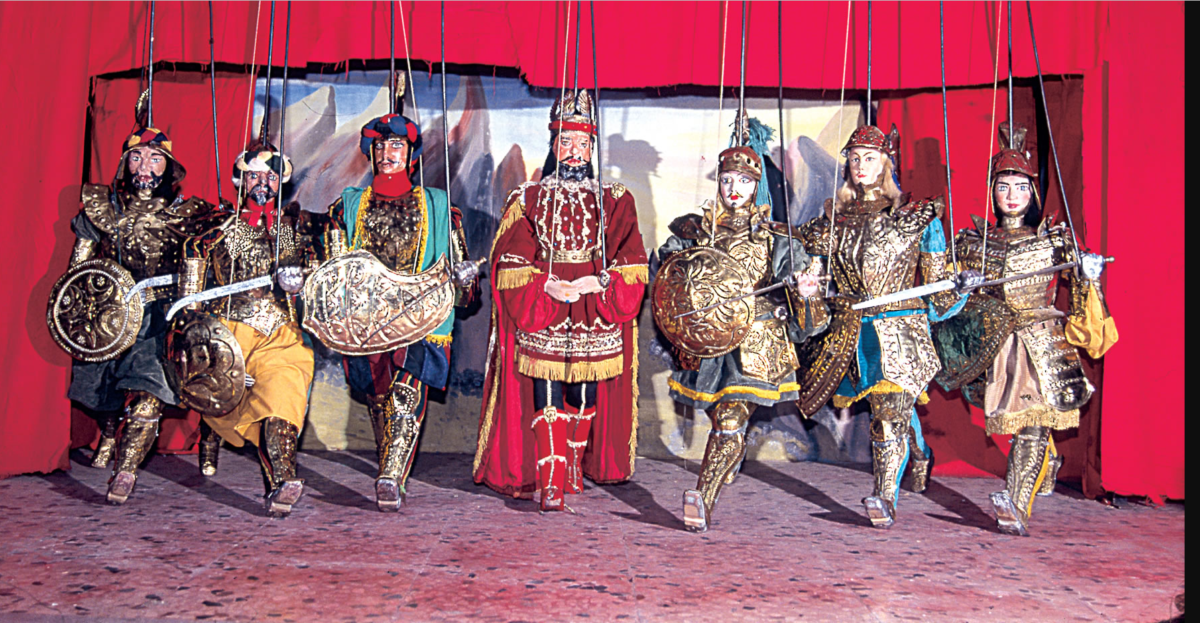The Opera dei Pupi is the traditional puppet theater of Sicily. Pupari are the people who animate the puppets, tell the story, and even act as directors.
The pupari present stories derived from medieval epic literature, with its chivalric episodes, lives of saints and brigands.
The history of Sicilian puppets dates back over 100 years, between the end of the 19th and the beginning of the 20th centuries. The art form originated in southern Italy, especially Sicily, and represented the revolt of the poor social class.
There are two different traditions, or styles, of the Opera dei Pupi in Sicily: the Palermitan, which was established in the capital and spread in the western part of the island, and the Catanese, which was established in the city of Catania and spread roughly in the eastern part of the island and also in Calabria. The chronicles tell us that the initiator of the Opera in Catania was Don Gaetano Crimi (1807-1877), who opened his first theater in 1835.
The two traditions differ in the size and weight of the puppets, in some aspects of mechanics and maneuvering system, but above all is a different theatrical and performance concept, that distinguish the Palermitan and Catenese style.
The Palermitan tradition has a simpler and more stylized theatrical and performance concept, whereas the Catanese tradition is more tragic, sentimental, and realistic.

2 replies on “The Opera dei Pupi”
A very interesting story. I would like to see a representation in the two versions.
You go to Sicily and you will enjoy this part of art!